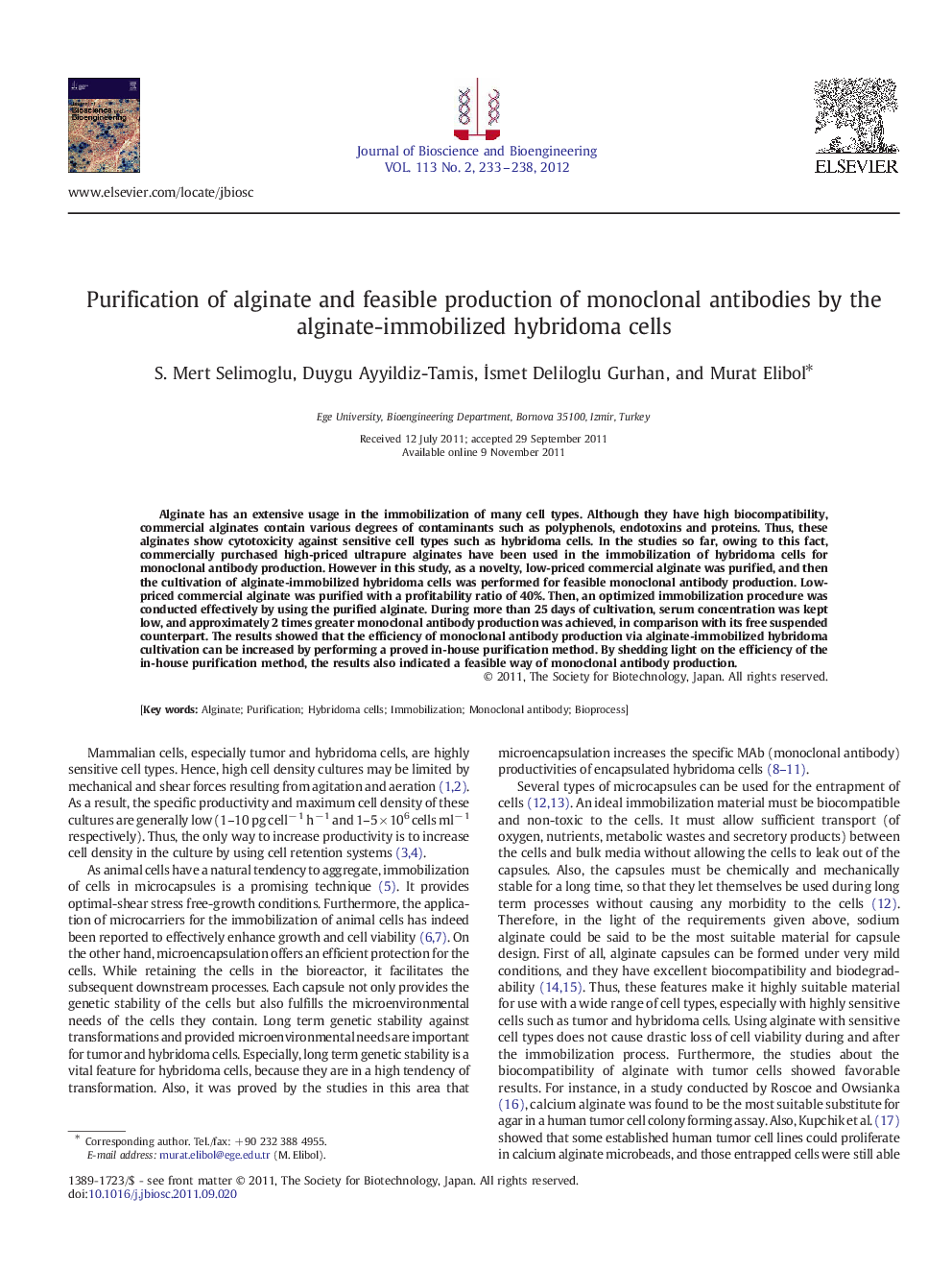| Article ID | Journal | Published Year | Pages | File Type |
|---|---|---|---|---|
| 21382 | Journal of Bioscience and Bioengineering | 2012 | 6 Pages |
Alginate has an extensive usage in the immobilization of many cell types. Although they have high biocompatibility, commercial alginates contain various degrees of contaminants such as polyphenols, endotoxins and proteins. Thus, these alginates show cytotoxicity against sensitive cell types such as hybridoma cells. In the studies so far, owing to this fact, commercially purchased high-priced ultrapure alginates have been used in the immobilization of hybridoma cells for monoclonal antibody production. However in this study, as a novelty, low-priced commercial alginate was purified, and then the cultivation of alginate-immobilized hybridoma cells was performed for feasible monoclonal antibody production. Low-priced commercial alginate was purified with a profitability ratio of 40%. Then, an optimized immobilization procedure was conducted effectively by using the purified alginate. During more than 25 days of cultivation, serum concentration was kept low, and approximately 2 times greater monoclonal antibody production was achieved, in comparison with its free suspended counterpart. The results showed that the efficiency of monoclonal antibody production via alginate-immobilized hybridoma cultivation can be increased by performing a proved in-house purification method. By shedding light on the efficiency of the in-house purification method, the results also indicated a feasible way of monoclonal antibody production.
► We study purification of low-priced commercial alginate. ► Hybridoma cells are immobilized for feasible monoclonal antibody production. ► We get higher monoclonal antibody production. ► Hybridoma cultivation can be increased by a proved in-house purification method.
